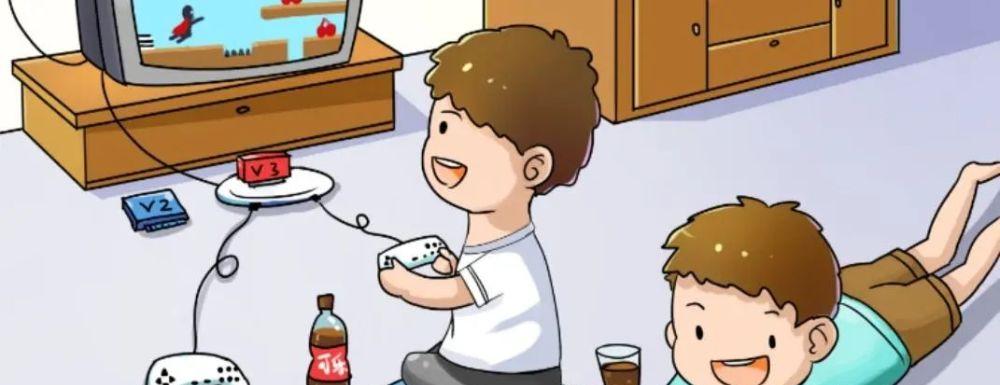Every child loves to play games, and when it comes to summer vacation, they hold their mobile phones and iPads and do not let go. What to do?
In fact, the blockage cannot be blocked, because the more you don't let him play, the more he wants to play!
Nowadays, from the post-00s to the post-10s, every child loves to play video games. According to the data of the American data company SuperData, the two major sources of post-00s contact with the game are one is the introduction of parents, and the other is recommended by classmates and friends-
Parents will help their children sift through and introduce games, which is unthinkable for us as children.

With the post-80s and post-90s ,90s , "game youth" with a certain "game literacy" gradually growing into parents, they also have a more inclusive attitude towards video games.
For the love of playing games, what parents need to do is not control, but guide!
01.
Agree on a video game time in advance
If you are worried that your child is addicted to and wastes school, you can agree in advance to play the game.
But remind parents that children have limited self-control and may forget the time once they enter the game. At this time, parental supervision is needed, timely reminder and strict implementation!
For example, I will play mobile games for my child for 30 minutes, and when there are still 10 minutes left, I will remind her, remind her once every 5 minutes, and remind her again in 1 minute. When the time comes, he will take the initiative to turn it off, of course, once in a while, it will not end a little, and he will be allowed to continue to complete, but within 5 minutes.
02.
You can set goals for the game
In fact, video games are not flood beasts, and many games can train children's problem-solving skills. Step by step through the type, character cultivation type, as well as multi-party formation.
You can set a goal for a game at a time, of course, this requires you to fully understand what game your child is playing, encourage him to gain a sense of purpose in the game, and improve his problem-solving skills.
03.
Try playing games with your child
I've always looked at video game players at home with an optimistic mindset. Since it can't be blocked, let the game become an intersection and talking point between me and my children, a breakthrough in communication.
The kids had a lot of fun, and I had a lot of fun with the kids. This may be the "game literacy" of modern young parents, and it feels very enjoyable to play together once in a while.
In the eyes of more and more young parents, games can be accompanied by parents, children can be assured of contact, and even take the initiative to buy games for children in the APP store, in fact, it is like books and movies, parents will also carefully choose the right game for children to play.
Is your "game literacy" enough? Hopefully, our children can live in a more active and healthy family play environment.